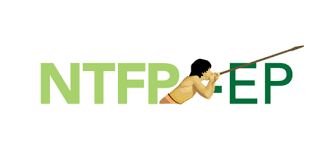Community / Land projects / Creating living incomes for smallholder coffee farmers
Creating living incomes for smallholder coffee farmers

€0
06/18 - 07/21
Achevé
This project is part of
Implementing Organisations
Donors
Data Providers
General
Small coffee growers in Ethiopia, producing 95% of Ethiopian coffee, are very vulnerable lacking access to financial, technical and/or social services and facing inefficient and non-transparent trading channels. Dutch company Moyee Coffee sources high quality coffee in Ethiopia and they aim to have a 100% sustainable and balanced coffee supply chain. Together with the Ethiopian FairChain team and by using blockchain technology, Moyee is maximising local value addition. It aims to secure living incomes for the producers. The company is currently scaling up sourcing activities in Ethiopia by supporting smallholder farmers in the field of high-yielding and sustainable coffee practices to ensure high quality coffee production.To prepare for a larger investment in Ethiopia, Technical Assistance (DGGF-TA) offers support to this project. Activities include the training of local smallholder farmers to improve production capacity and to prepare for Rainforest Alliance and UTZ certification, the set-up of a wet mill – of which farmers can become co-owners – and the testing of blockchain technology use cases, which include the development of traceability and transaction functions, including ‘wallets’ for each participant (farmers, graders, NGOs, buyers, processors, etc), to create transparency of value distribution in the entire chain. A yield and income history of farmers is created, providing them with more access to finance.The project is ongoing and currently supports 11 direct jobs, 120 direct seasonal jobs, 410 indirect jobs and has provided sustainable knowledge transfer by training 350 people regarding Climate Smart Agriculture, Practices which leads to increased incomes of farmers involved. Furthermore, the project contributes to behaviour change in the farming population, by segmenting farmers and identifying the profitability potential of each farm. As a result, farmers with clear profitability potential are believed to adopt more practices and increase yields, while making investments (time and money) in their farms, which they previously did not have the courage to. Other farmers may choose to diversify, in which case FairChain’s Platform will help connect them with markets for other products than coffee.Upon successful completion, further investments are being prepared and may lead to increased adoption of practices by small farmers, more digitalization of farms and farmers to improve business skills, record keeping and access to finance. An ingrower model is being explored, to achieve land reform for farmers too small to get out of poverty. 45 ingrowers will be trained on a FairChain model farm, where they will get paid living wages, professionalize, be enabled to save money, and buy plots to become medium or large farmers. Proof of impact would be sent as feedback via the Platform, achieving consumer loyalty through blockchain evidence, rather than through traditional social media or other online and offline marketing channels and tools.


